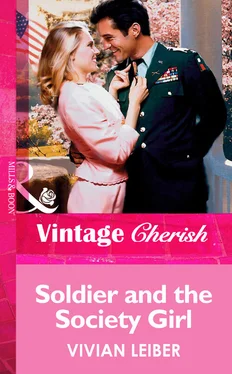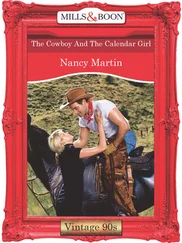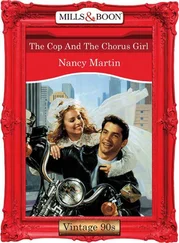“The President’s position is that we have him by rights,” the undersecretary said. “We put him on every news outlet, every parade, every ribbon-cutting ceremony. every graduating class...”
“And every campaign fund-raiser?” the general asked archly. “After all, this is an election year.”
“No, of course not,” the undersecretary said, placing his hand over his heart as if to quell his outrage. “But we can at least agree that we all want a piece of him. The only question is how to divide the hero pie, right, gentlemen?”
The men gathered around the low table nodded, and Winston, sensing that his briefing on McKenna’s attributes was over, laid a large appointment calendar on a space he cleared of clutter.
“Gentlemen,” he said, shoving his glasses to the bridge of his nose. “May I present Derek McKenna?”
And for the next four hours, the men argued, cajoled, coerced, ranted, threatened and bargained behind the locked doors of the office of Winston Fairchild III until they had every minute of Lieutenant Derek McKenna’s next six months accounted for.
Chapter One
“No,” said Lieutenant Derek McKenna.
He looked around the swank State Department corner office. The men he addressed hadn’t quite absorbed the word he had uttered, but their baffled expressions suggested their brains were working feverishly. Derek would be patient—after all, no wasn’t a word any of these men heard all that often.
Any right-thinking soldier would be scared to tell the gathering that he wasn’t going along with their carefully laid plans. Who was Derek McKenna to say no to the general at the helm of the Joint Chiefs of Staff, two congressmen, several State Department officials and somebody from the White House who had been identified as the undersecretary of the undersecretary of the chairman of something that had been lost in the rush of handshakes and salutes that had started this meeting?
But Derek had spent two years in hell and wasn’t scared of a few suits or a chestful of medals.
“No,” Derek repeated, in case anyone in this room still didn’t get it.
They didn’t
Just stared at him, the congressmen from New York worrying a pencil with his teeth, a bubble of dribble erupting on the open mouth of the congressman from Arizona, the State Department official whose office this was rubbing his glasses on his tie.
“Did you say no, son?” the head of the Joint Chiefs of Staff asked.
“Yes, sir. I mean, that was a no, sir,” Derek said. And then he lifted his chin, challenging the general to disagree. He was going back to the farm. No more of this see-the-world, broaden-your-horizons, more-to-life-than-this for him.
Kentucky was just fine.
“I said no and, with all due respect, General, I meant it,” Derek said. He shoved the appointment calendar off his lap. An aide rushed to pick it up. “I’m not doing any of this.”
“But, soldier...”
“General, I didn’t dream every night in my prison cell about going on Barbara Walters or hitting the rubber chicken lecture circuit or even having dinner at the White House and getting a photo op with the first family. I didn’t dream of shaking hands, parades or even giving stump speeches to the League of Women Voters.”
Actually, Derek had spent most of his daydreams back in the green, lush fields of Kentucky. Planting and replanting in his head the plot of land that belonged to his father. Feeling the soft tender shoots in his hands. Smelling the heavy, damp air of morning. Hearing the cicadas’ nighttime mating call and the creak of the rocking chair on the front porch.
Sometimes his dreams had been so real, so fresh, so vibrant that he had thought the hellish prison cell was itself the dream and that he could awaken. A deep and brooding loneliness would overtake him when he would realize the truth. That he couldn’t awaken, he could only endure. And find a way out.
The fact that he was in Washington was proof enough to these men that he had indeed found a way out.
But Derek knew they were wrong.
And that’s why he had to say no.
“Besides,” Derek added, bringing out his trump card with a devilish smile. He had figured this one out about six months into his captivity. “General, you can’t tell me what to do because my enlistment expired while I was away.”
A bespectacled suit who had been seated in a folding chair next to the ficus plant pulled a yellow legal pad out of a briefcase.
“Joe Morris, Justice Department,” he introduced himself. “Lieutenant McKenna, a soldier may be called back to active duty or held back from a discharge under special circumstances.”
Morris glanced at his notes.
“The case of Green versus Grant is most instructive on this point,” he said. “And I’ll just read you a quote from the Supreme Court opinion. Justice Thomas, writing on behalf of the court, states that—”
“I don’t think we need the legal mumbo jumbo at this point,” the general interrupted. Joe Morris looked crestfallen, having lost his moment to show off what he had produced in a week of research into legal lore. “Just give us the bottom line.”
“The bottom line, sir?”
“Yes, the special circumstances.”
Morris swallowed and then looked at Derek.
“All it takes is a request from the President to reinstate you, Lieutenant. And he can actually reactivate the request repeatedly, for as long as he feels that your services are required for the national interest. In other words, as the Supreme Court stated—”
“Get the President on the phone,” the general told his aide, slyly adding another cube of sugar to his coffee.
Derek lifted his hand. The aide hesitated, a slim, manicured hand held aloft at the phone.
“All right, fine, I’ll give you two weeks if you don’t call,” he said.
“Three months,” the general countered.
“A month.”
“All right, a month, but we’re going to shuffle this schedule so that it’s heavy. Very heavy. That means appearances every day.”
Winston leaned his head back and signaled to his aide.
“Get an alternate schedule produced stat.”
“Yes, sir. I’ll have it by tomorrow, sir.”
“No, you’ll sit down at my desk right now and put it together while we wait. A month divided into three-hour appearances, four a day, comes out to...”
“Fairchild, even combat soldiers get some rotation time,” Derek said.
“This isn’t war,” the general said archly. “This is a pleasure.”
“A pleasure in which I’m not so sure I want to indulge,” Derek said, leaning back in the comfortable pillows on the couch. He lifted his boots, noting with joyful mischief that they carried just a few drops of tar from the recently repaved streets of Washington. “I’m willing to start next week.”
“Tomorrow, soldier.”
“Three days from now.”
“Hey!” Winston exclaimed. “You can’t put your feet there. That table was purchased by the wife of Martin Van Buren! It’s a national treasure.”
The upper-floor offices of the drably modern State Department building had been recently refurbished with elegant furniture, rugs, paintings and fixtures from the early 1800s.
Derek crossed his boots comfortably on the priceless table. A globule of tar was dislodged from the sole of his right boot and dropped onto the leather writing pad of the congressman from Arizona before he could snatch it away. Ignoring the elected official’s distress, Derek snagged a soda can from a hospitality tray next to the couch.
“Can I borrow your pen?” he asked the Justice Department lawyer. Joe Morris held out a Mont Blanc.
“My mother gave it to me as a graduation present,” he explained.
Derek rejected it in favor of a disposable ballpoint in the hands of the undersecretary.
Читать дальше












